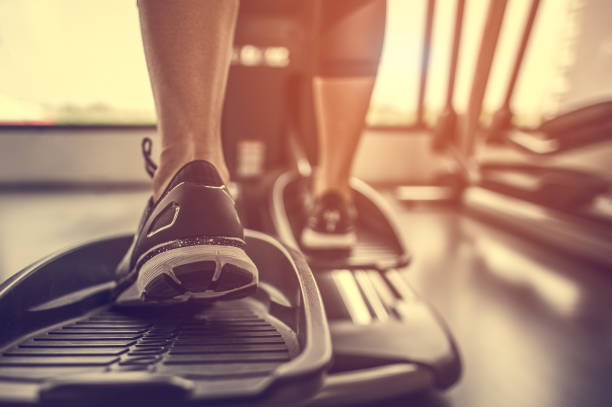Introduction
Weight loss is the process of reducing body mass, usually through a combination of dietary changes, physical activity, and lifestyle adjustments. It often aims to reduce excess body fat, improve overall health, and reduce the risk of various chronic diseases such as heart disease, type 2 diabetes, and high blood pressure.
The basis of weight loss generally revolves around the concept of calorie balance, where calories consumed from food and beverages are less than calories expended through metabolic processes and physical activity. When this balance becomes negative, the body begins to use stored fat for energy, which leads to weight loss.
Diet plays an important role in weight loss. Eating a balanced diet rich in nutrients but low in calories can help you achieve and maintain a healthy weight. This often involves eating a variety of foods, including fruits, vegetables, whole grains, lean protein, and healthy fats, while limiting your intake of processed foods, sugar, and unhealthy fats.
Physical activity is equally important, as it helps burn calories, build and maintain muscle mass, and improve metabolic rate. Regular exercise also contributes to overall fitness, mental health and well-being.
Behavioral changes are also essential for successful weight loss. This includes setting realistic goals, developing healthy eating habits, identifying and changing unhealthy habits, and seeking help when needed.
Sustainable weight loss is usually gradual and involves long-term changes rather than resorting to extreme diets or quick fixes. It is important to lose weight in a healthy, balanced way to avoid negative health effects and promote sustainable change. Consultation with a healthcare professional such as a dietitian or physician can provide personalized guidance and support in developing a safe and effective weight loss plan.
Why weight loss is important?
Losing weight is important for many health reasons, especially since being overweight can contribute to various health risks. Here are some key reasons why losing weight is important:
- Lower risk of chronic diseases: Excess body weight, especially fat, is linked to an increased risk of many chronic conditions such as heart disease, type 2 diabetes, stroke, and some types of cancer. Losing weight can help reduce these risks.
- Improved heart health: Losing weight improves blood pressure, cholesterol levels and reduces stress on the heart, which helps reduce the risk of heart disease.
- Improved Mobility and Physical Function: Carrying less weight can reduce stress on joints, especially in weight-bearing areas such as knees and hips, potentially reducing pain and improving mobility.
- Better Blood Sugar Control: Losing weight improves insulin sensitivity and helps control blood sugar levels, which is critical for managing or preventing type 2 diabetes.
- Improved Mental Health: Losing weight can have a positive effect on mental health by reducing symptoms of depression and anxiety. Physical activity, a component of many weight loss programs, can also boost mood through the release of endorphins.
- Improved Quality: Losing weight can improve symptoms of sleep apnea, obesity-related conditions, and overall sleep quality.
- Increased energy levels: Losing excess weight can improve energy levels, as the body requires less effort to move and work.
- Longevity: Maintaining a healthy weight is associated with longer life expectancy, possibly due to a lower risk of chronic diseases.
Overall, weight loss, when achieved through healthy eating and regular physical activity, can significantly increase quality of life and reduce the risk of many health problems. However, it is important to aim for gradual and sustainable weight loss while promoting overall health and well-being.
Types of exercises that aid weight loss
Exercise is a fundamental aspect of a weight loss regimen, not only for burning calories but for improving overall health and increasing fitness levels. The right type of exercise can help you lose weight by increasing your calorie expenditure, building muscle and improving your metabolic rate. Here is a detailed look at the different types of exercises that can help you lose weight:
1. Cardiovascular exercise
Cardiovascular exercise, often called aerobic exercise, is activity that increases your heart rate and breathing rate. These exercises are effective in burning calories and improving cardiovascular health.
- Running or jogging: Running is the most effective cardiovascular exercise for burning calories. It is high-impact and can significantly increase your metabolism. Jogging offers a low-impact alternative that still provides a substantial calorie burn.
- Cycling: Whether on a stationary bike or outdoors, cycling is a great way to burn calories, build endurance and build leg strength.
- Swimming: Swimming is a full-body workout and is especially good for those who prefer low-impact exercise. It can burn more calories and improve heart health.
- Walking: Walking is a low-intensity exercise that is accessible to most people. Brisk walking can be effective for burning calories, especially when incorporated into a daily routine.
2. Strength training
Strength training, also known as resistance training, involves the use of weights or resistance to build muscle mass. Muscle tissue burns more calories than fat tissue, even at rest, which can boost your metabolism.
- Weight Lifting: Using free weights, resistance machines or bodyweight exercises (eg squats, deadlifts, bench press) to target different muscle groups.
- Bodyweight Exercises: Exercises like push-ups, pull-ups, lunges and planks use your body weight as resistance. These can be effective for building muscle and increasing calorie expenditure.
- Resistance Bands: These bands provide resistance during exercise and can be used to strengthen muscles in different parts of the body.
3. High-Intensity Interval Training (HIIT)
HIIT involves alternating between short bursts of intense activity and periods of rest or low-intensity exercise. HIIT is known for its ability to burn significant amounts of calories in a short period of time and improve metabolic rate.
- Cardio Intervals: For example, sprinting for 30 seconds followed by 1 minute of walking.
- Circuit Training: A series of exercises performed one after the other with minimal rest in between, often combining cardiovascular and resistance exercises.
4. Group fitness classes
Group fitness classes provide structure, motivation, and a social aspect that can enhance the workout experience.
- Aerobics: High energy classes that often include music and choreographed routines to improve cardiovascular fitness.
- Zumba: A fun and effective dance-based cardio workout to burn calories.
- Boot Camps: These classes often combine cardiovascular exercise, strength training, and high-intensity interval training for a full-body workout.
5. Sports and recreational activities
Participating in sports or recreational activities can also be a fun way to burn calories and stay active.
- Tennis, basketball, or soccer: These sports provide cardiovascular exercise and resistance training, especially in the legs and core.
6. Flexibility and recovery exercises
Although not directly related to weight loss, exercises that improve flexibility and recovery are important to overall fitness and injury prevention.
- Yoga: Can improve flexibility, strength, and mental focus, which can be beneficial for recovery and stress management.
Incorporating these different exercises into your fitness routine can provide a comprehensive approach to weight loss and fitness. It is important to find activities that you enjoy, as this will increase your adherence to a regular exercise program. Combining physical activity with a balanced diet and healthy lifestyle choices is essential for sustainable weight loss.
Trending Posts
Different Types of Natural Herbs and Their Uses
Different Types of Natural Herbs and Their Uses for the kind information of Different Types of Natural Herbs…
7 Tips for Optimizing Your Sleep in 2024
Introduction of 7 Tips for Optimizing Your Sleep in 2024 Here is the information about 7 Tips for…
The Importance of Regular Health Checkups
Introduction of Regular Health Checkup Information aboutThe Importance of Regular Health Checkups Regular health checkups are an important…
8 Signs of Good Mental Wellbeing
here is the informataion about 8 Signs of Good Mental Wellbeing In today’s fast-paced world, mental health is…
The Incredible Benefits of Meditation for Mental Health
What is Mental Health ? Here is a complete infotmation about The Incredible Benefits of Meditation for Mental…
5 Effective Anxiety Relief Techniques
1.What is Anxiety ? Here is the informaion about 5 Effective Anxiety Relief Techniques ,Anxiety is a psychological…
Top 10 Nutritional Supplements for Better Health
Introduction of Nutritional supplements For introduction of Top 10 Nutritional Supplements for Better Health , Nutritional supplements are…
What are the Top 10 Benefits of Organic…
Introduction of top 10 Transformative benefits of organic pure food Here is the introduction on top 10 benefits…
Top 10 Ultimate Guide to Cardio Exercise
Introduction for Top 10 Ultimate Guide to Cardio Exercise Here is the introduction for Top 10 Ultimate Guide…
Consistency and Patience
Consistency is key to any weight loss plan. It’s important to stick to your healthy habits, even when progress seems slow. Patience is also necessary, as sustainable weight loss takes time.
Sleep and Stress Management
Sleep and stress management are important components of overall health, affecting both physical and mental health.
Sleep: Quality sleep is essential to restore the body and mind. It supports immune function, enhances memory consolidation, and regulates mood. Lack of sleep has been linked to many health problems, including obesity, heart disease, and depression. Adults generally need 7-9 hours of sleep per night. Good sleep hygiene, such as maintaining a regular sleep schedule, creating a relaxing environment and limiting screen time before bed, can help improve sleep quality.
Stress Management: Chronic stress can have a negative impact on health, contributing to problems such as high blood pressure, digestive problems, and a weakened immune system. Effective stress management techniques include regular physical activity, mindfulness practices, relaxation exercises, and adequate social support. Engaging in hobbies and activities you enjoy can also reduce stress levels. Developing healthy coping strategies and seeking professional help when needed are important steps in managing stress effectively.
Together, proper sleep and effective stress management are essential to maintaining overall health, increasing quality of life and reducing the risk of chronic diseases.
Hydration
Hydration plays an important role in weight loss and overall health. Here are several tips and information on how proper hydration can support weight loss efforts:
1. appetite control
Drinking water before meals helps control hunger. Sometimes, thirst is mistaken for hunger, leading to unnecessary calorie intake. Drinking a glass of water before a meal can help you feel full, reduce the amount of food you eat, and help with portion control.
2. boosts metabolism
Staying well hydrated can boost your metabolism. Water is involved in all cellular processes, including energy production. Studies have shown that drinking water can temporarily increase the metabolic rate, helping your body burn calories more efficiently.
3. Calorie-Free Hydration
Replacing sugary drinks like soda, juice, and sweet tea with water can reduce your daily calorie intake. These drinks often contain empty calories that can contribute to weight gain. On the other hand, water is calorie-free and helps you stay hydrated without adding extra calories.
4. Exercise Performance
Proper hydration is essential for optimal exercise performance. Dehydration can cause fatigue, poor coordination, and muscle cramps, reducing the effectiveness of your workout. Drinking water before, during and after exercise helps maintain energy levels and improve performance, allowing you to burn more calories.
5. Digestion and Detoxification
Water aids digestion and promotes regular bowel movements, preventing constipation and bloating. It also supports kidney function, helping to flush out toxins and waste products from the body, which can contribute to a healthy metabolism.
6. healthy skin
Adequate hydration improves skin health, which can be especially encouraging during weight loss. Hydrated skin looks more youthful and vibrant, which can boost your confidence and encourage you to continue your weight loss efforts.
7. Tips for Staying Hydrated
- Carry a water bottle: Carry a reusable water bottle throughout the day to remind yourself to drink.
- Set Reminders: Use phone alarms or apps to remind you to drink water regularly.
- Flavor Your Water: Add pieces of fruit, vegetables, or herbs (such as lemon, cucumber, or mint) to your water to make it more appealing.
- Monitor Your Intake: Track your water intake to ensure you’re meeting your daily hydration goals.
Incorporating proper hydration into your weight loss plan can boost your efforts and improve overall health. By drinking enough water, you can control your appetite, boost metabolism, enhance exercise performance, and maintain digestive health. Make hydration a priority to support your weight loss journey and achieve better results.
FAQS
- How quickly can I expect to lose weight?
Weight loss varies from person to person, but a safe and sustainable rate is about 1-2 pounds per week. - Is it necessary to exercise to lose weight?
While diet plays an important role, exercise can help you burn more calories and improve overall health. - Can I lose weight without changing my diet?
Dietary changes are important for weight loss, but combining dietary changes with physical activity will yield the best results. - What are some effective exercises for weight loss?
Aerobic exercises such as walking, running and cycling are effective in burning calories. Resistance training is also beneficial for building muscle and increasing metabolism. - How important is sleep to lose weight?
Adequate sleep is essential for weight loss as it helps regulate hormones that control appetite and metabolism.



 By
By







